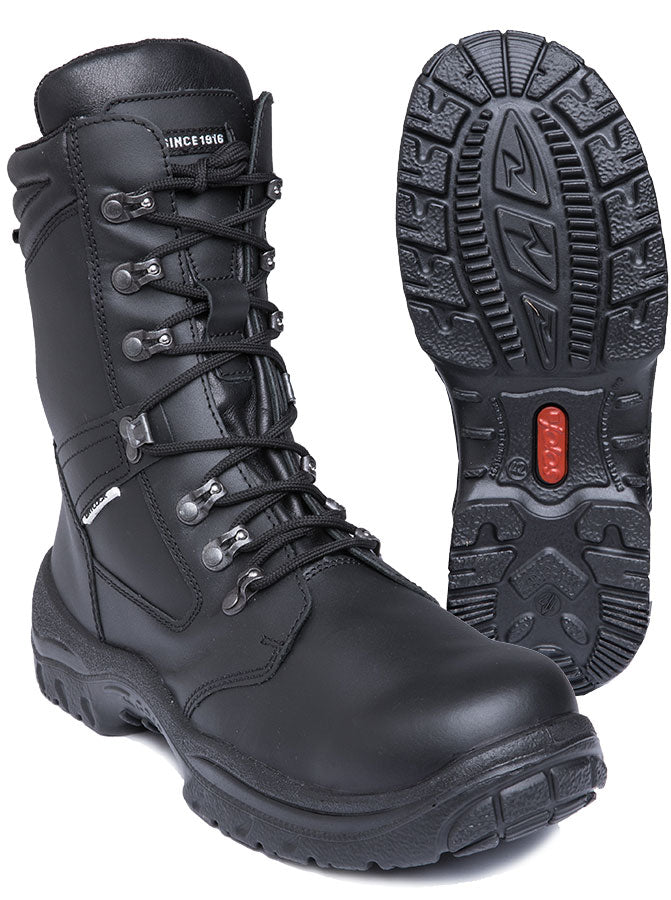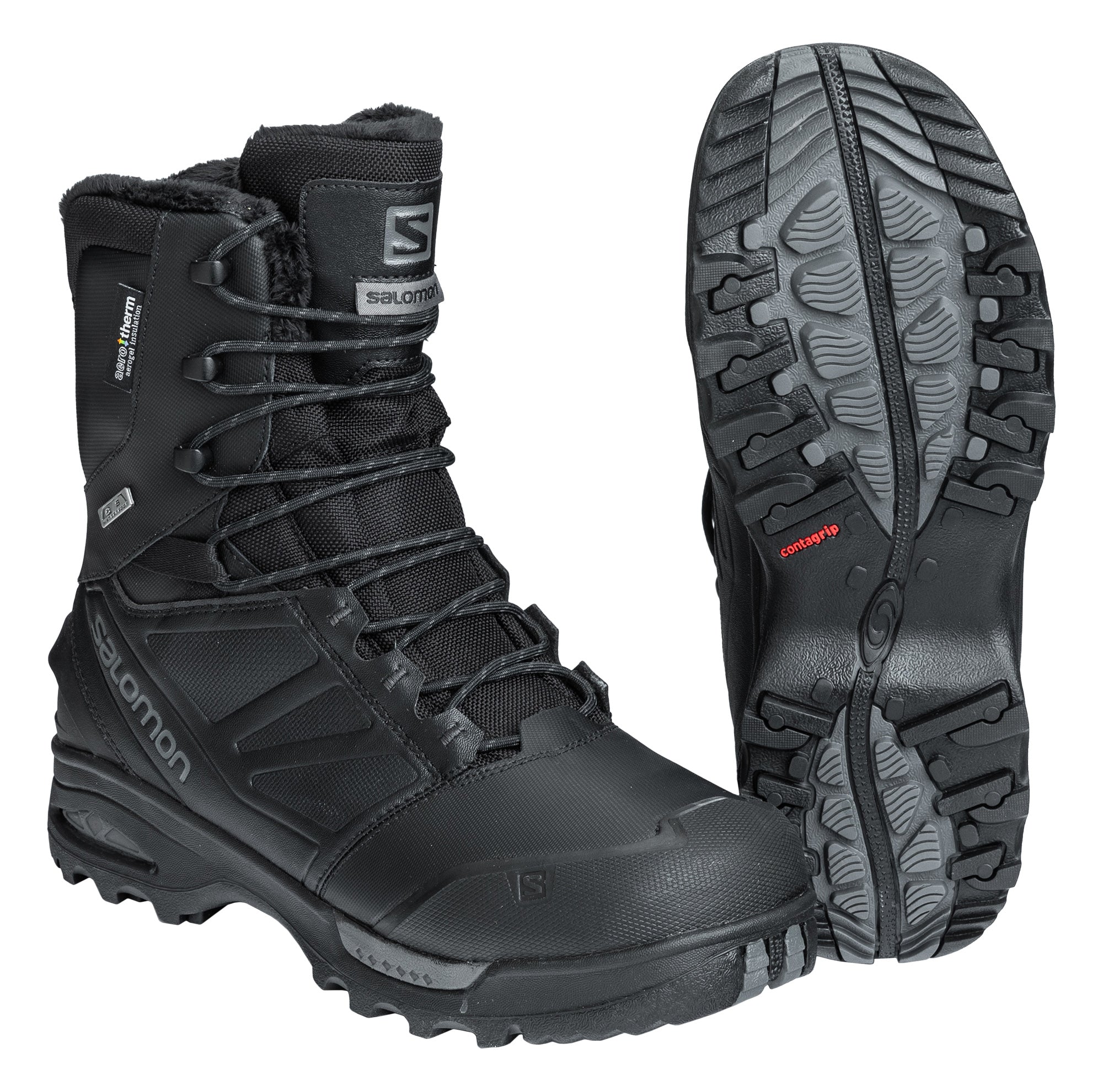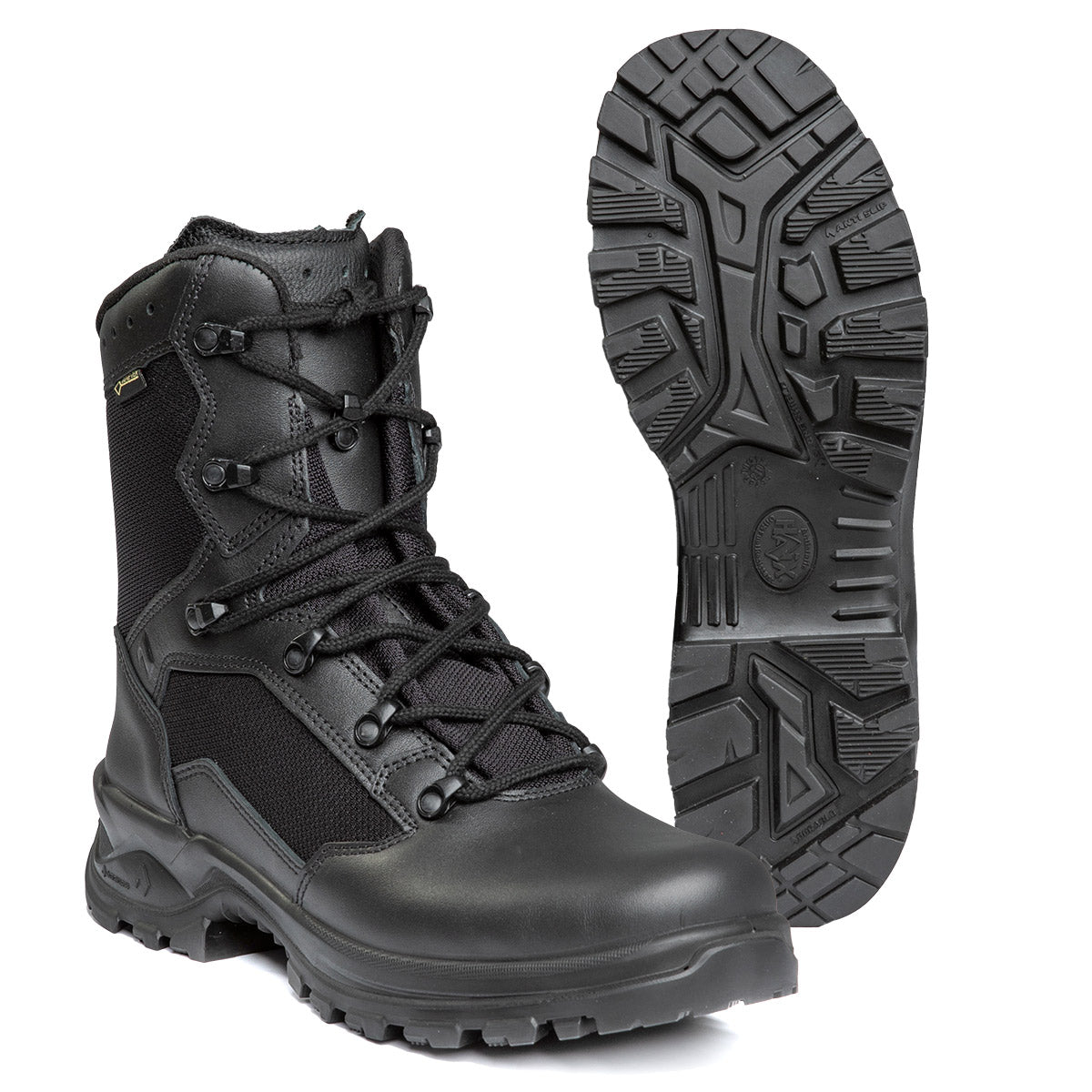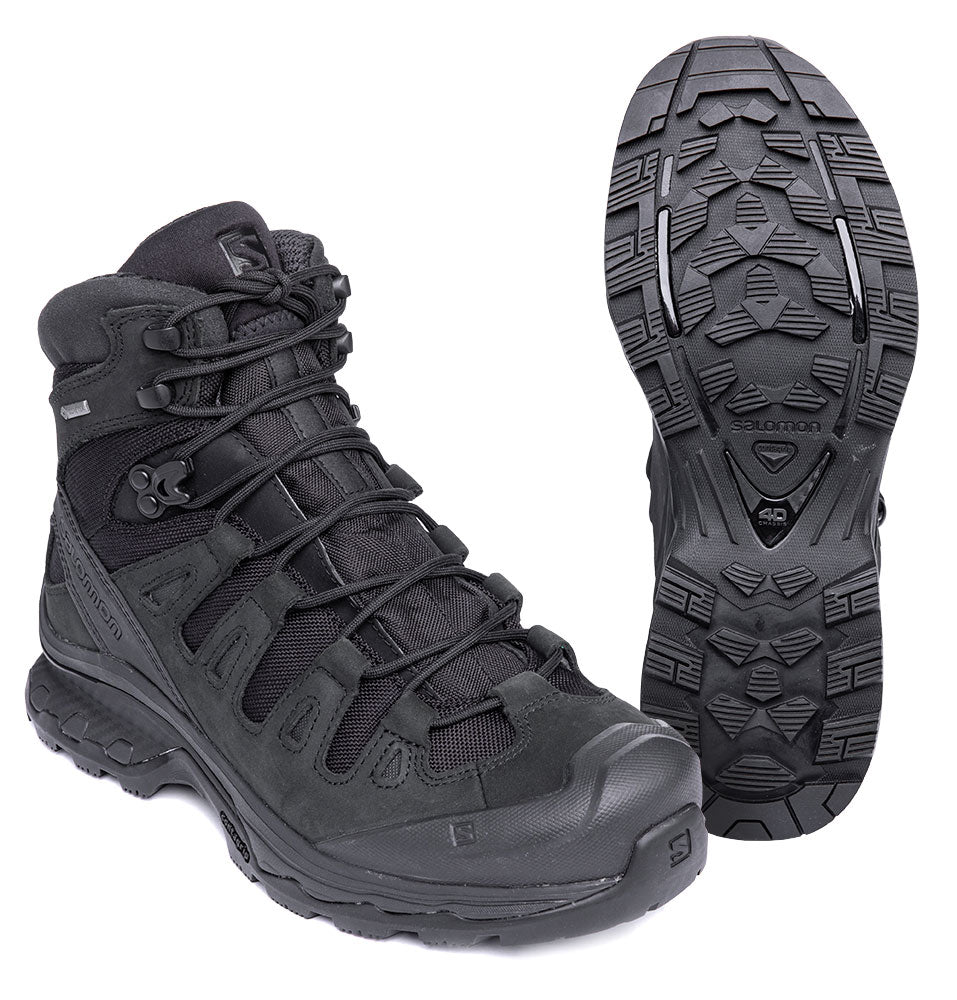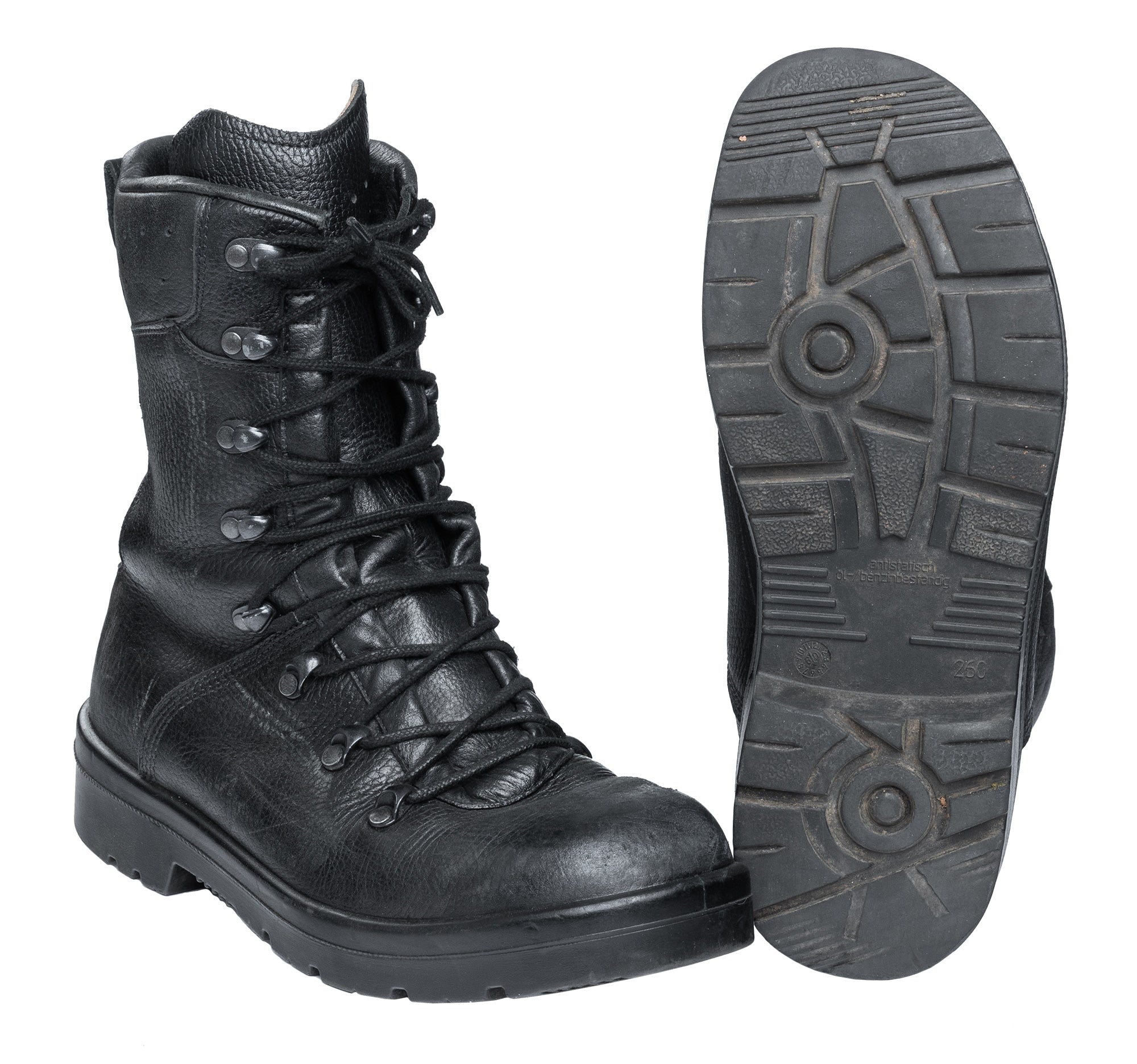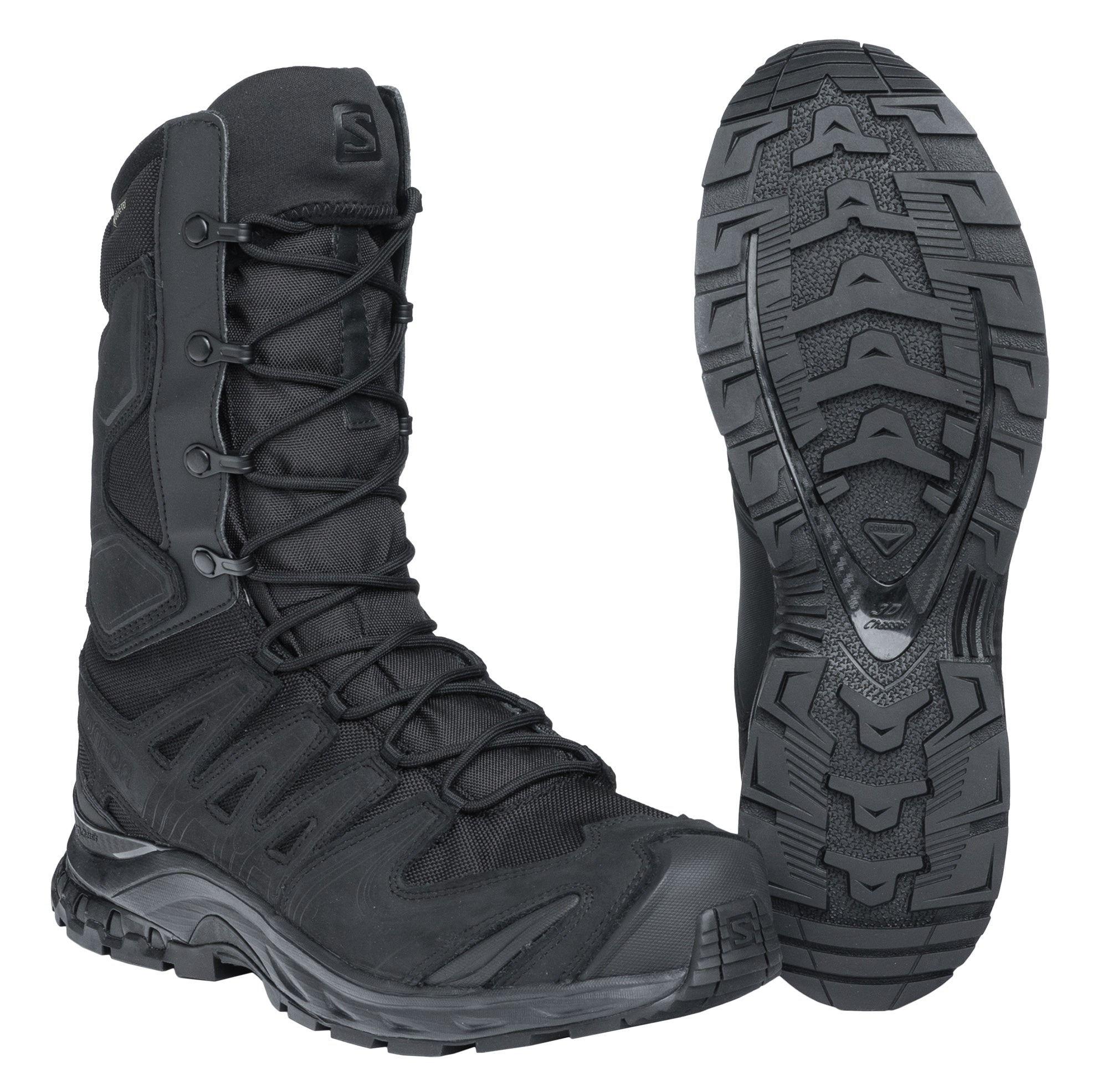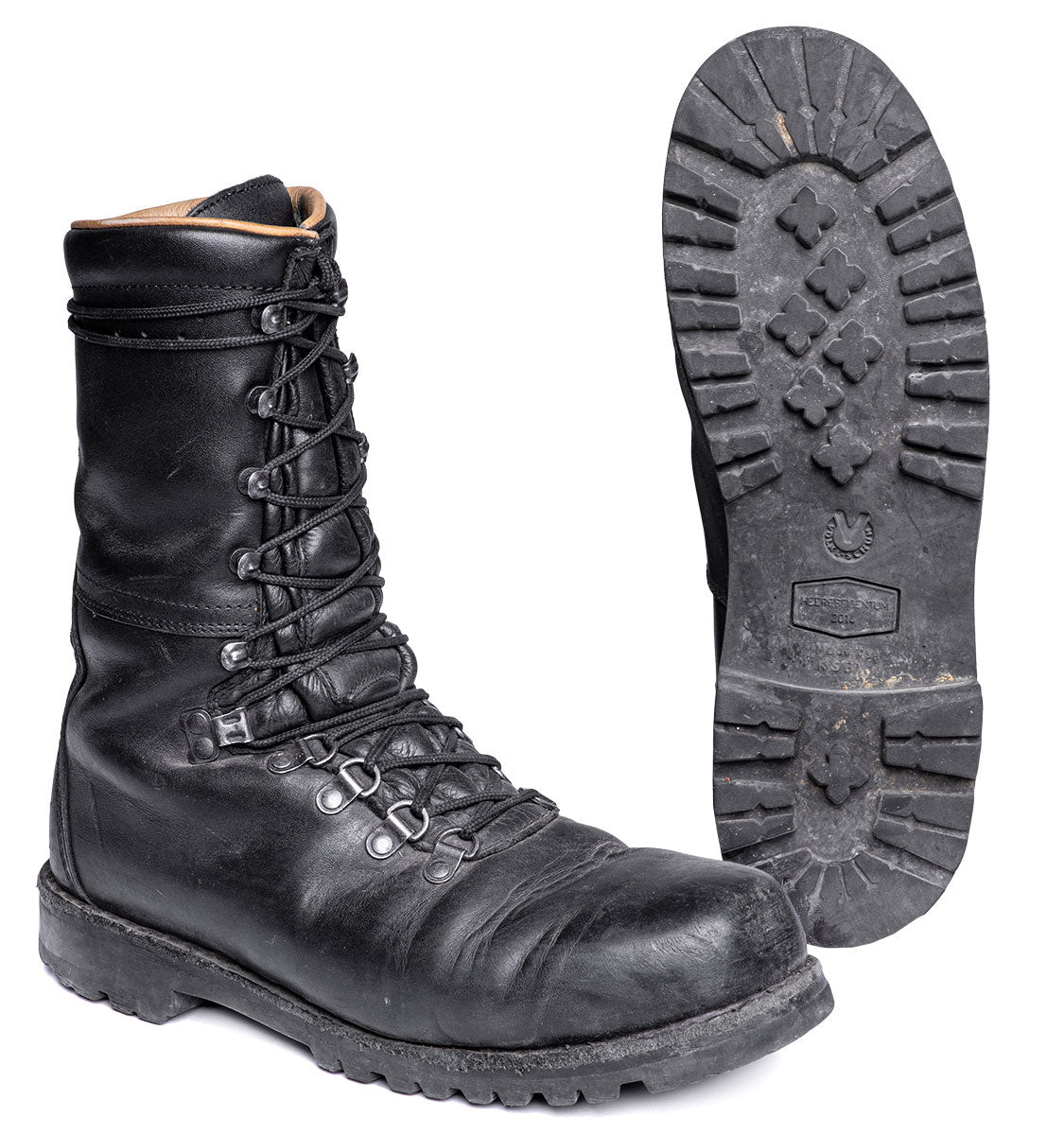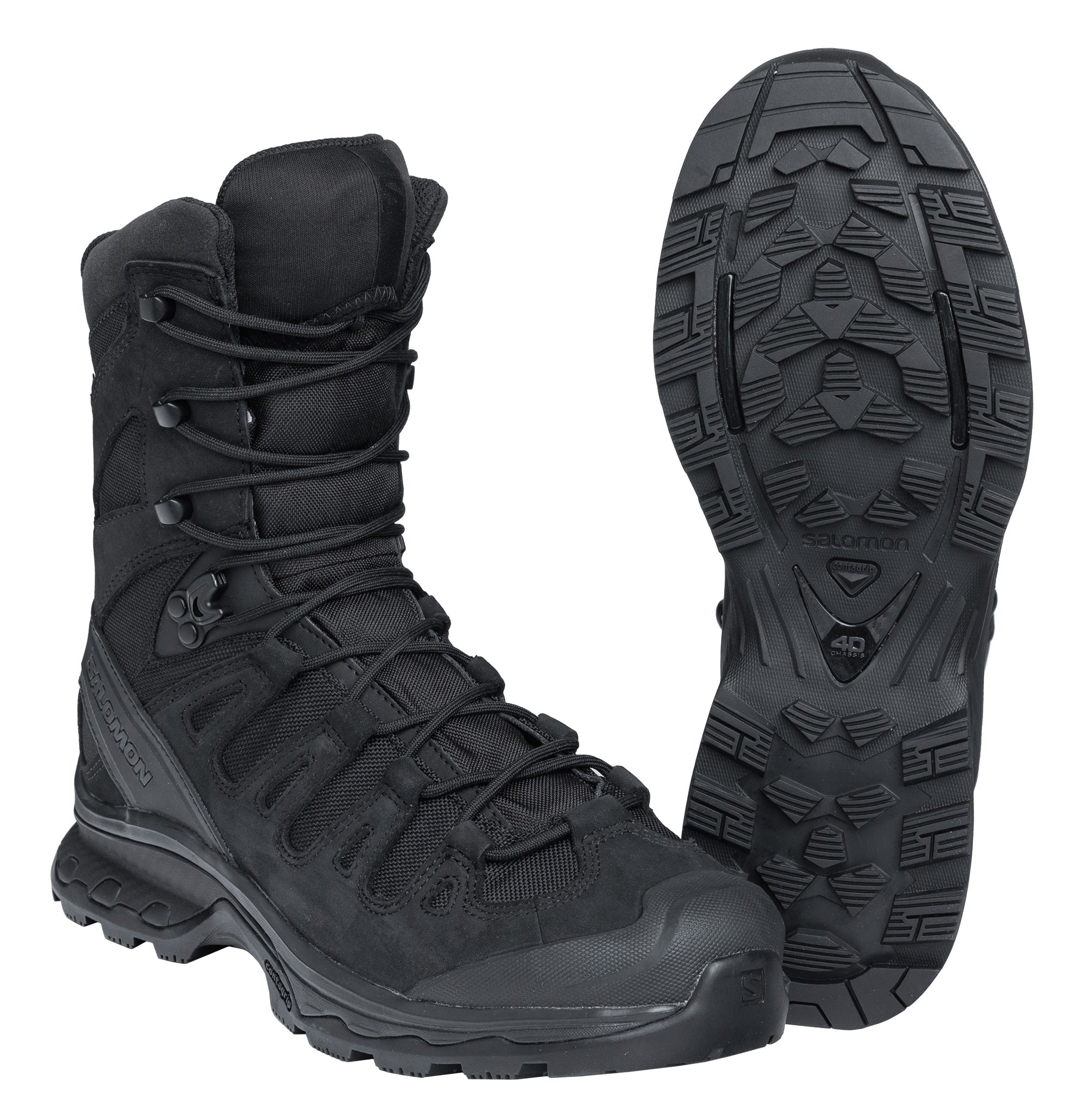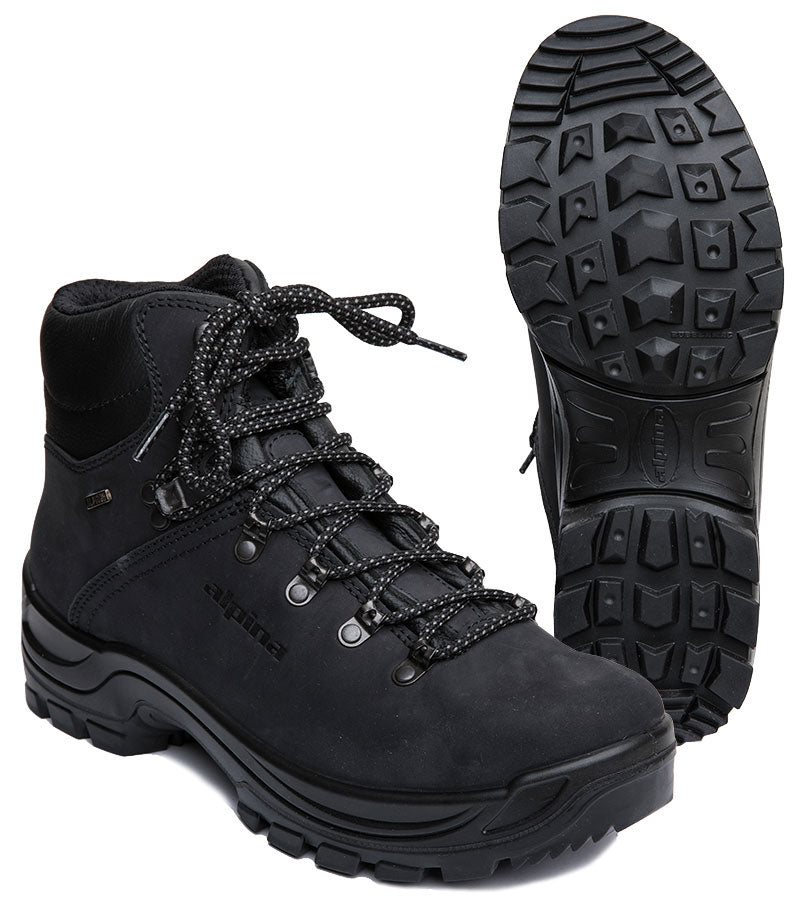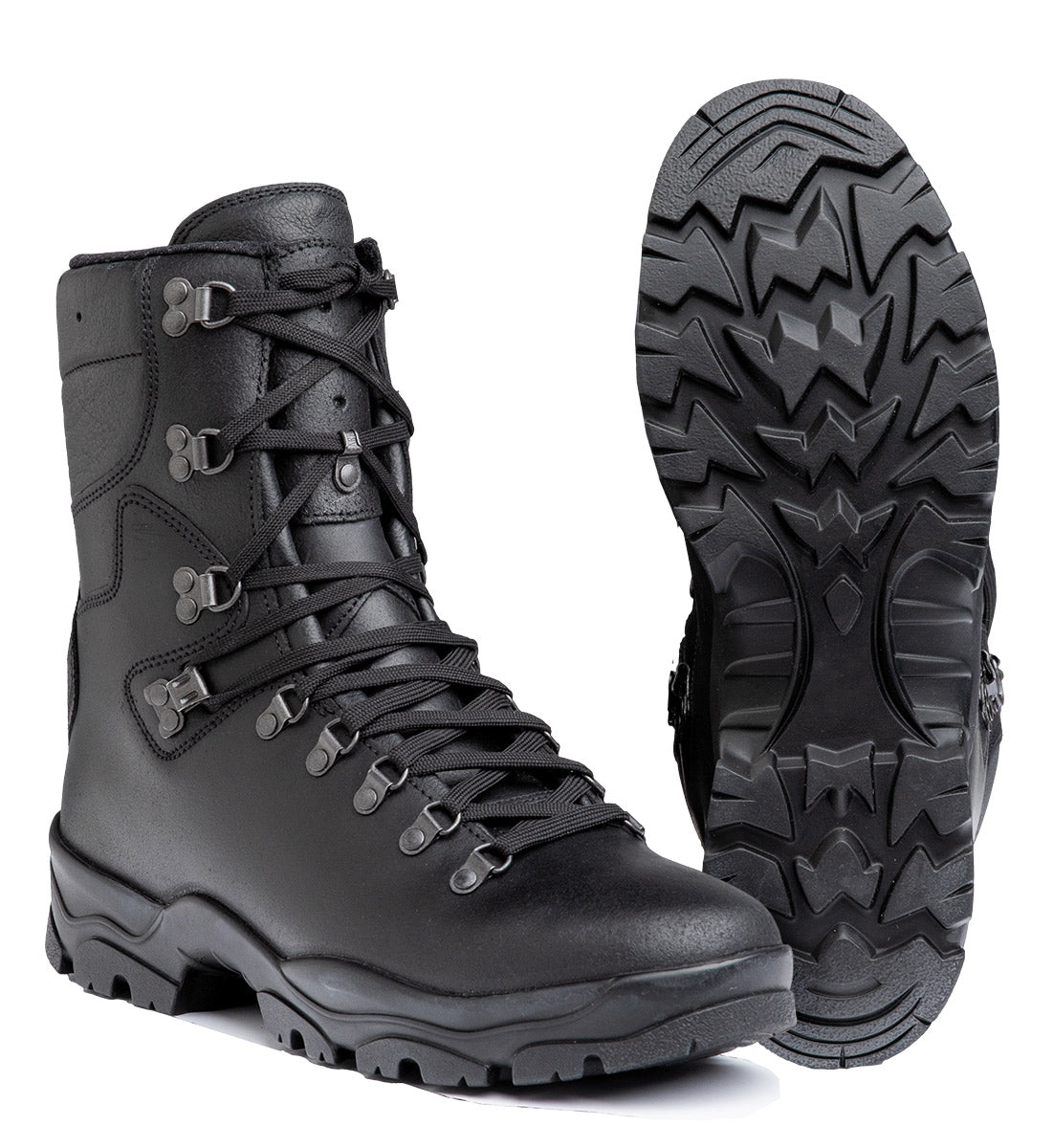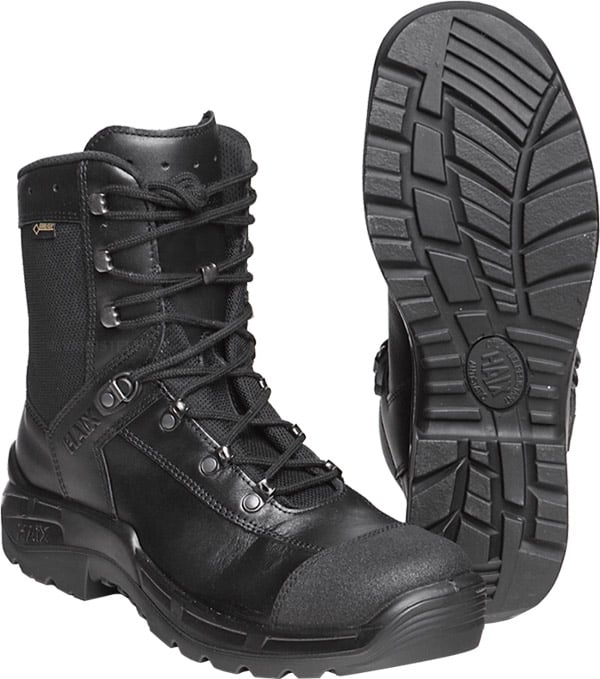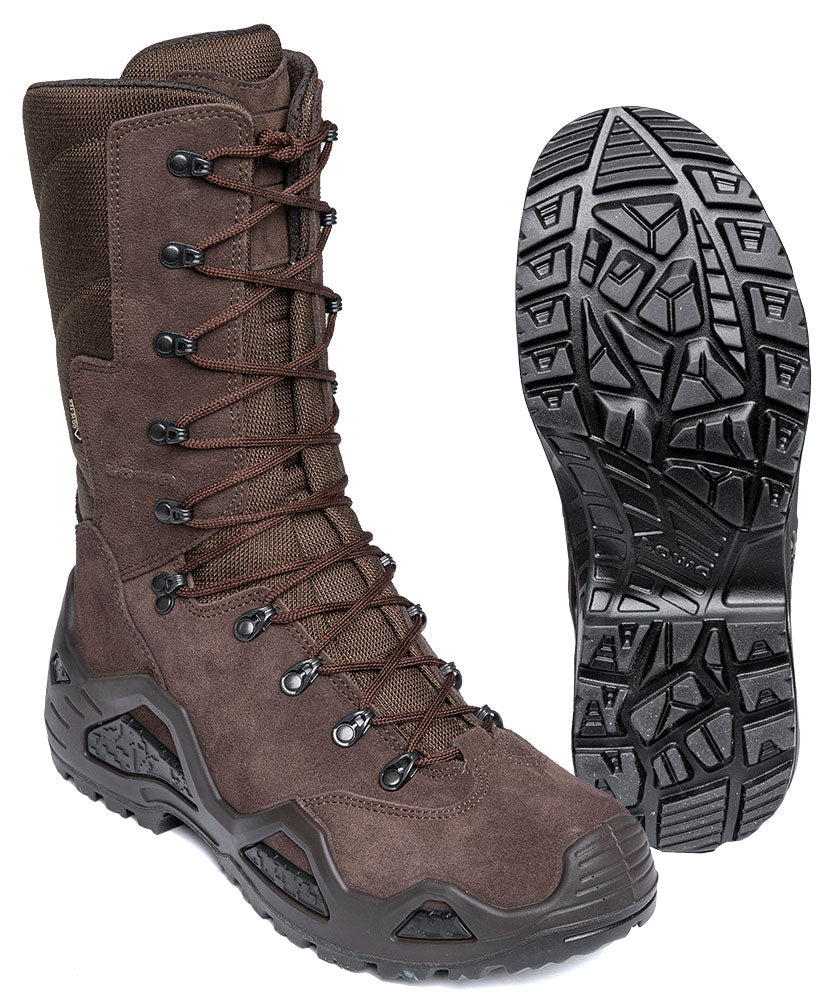






William Lennon B5 Ankle Boots, Dark Brown, Single Thickness Sole
- A few left in stock – 90% of orders are shipped during the next business day. – Place an order before the product is out of stock. – Subscribe to a Back in stock notification.
Measurements
Technical details and instructions
Description
The service boot of the British soldier in the First World War was a full leather ankle boot. These are a "reproduction" made in England; the same company manufactured them during the war! We got this production run with rubber half-soles and heel plates as the original pig-iron hobnails are a bit incompatible with today's world. Single thickness sole makes for a more flexible boot.
- Single thickness leather sole, brass screwed (Blake construction)
- Rubber heel piece and half-sole
- Upper made of about 2,8 mm thick, unlined Swiss-made roughout leather
- No reinforcement on the inside of the vamp - there's no need as the leather's so thick
- Leather footbed
- Handmade in England with original machines, work methods, and lasts!
- Made with work boot specs (more on this later)
From the trenches to the modern era
In the past, the soldier's choice of footwear was either jackboots or lace-up shoes and puttees, as was the case with the British Army. The B5 ankle boot was adopted for service in 1916, replacing the older B2 model, until superseded by the WWII Ammo Boot. In general, the B5 is a proper tough ol' military boot just as they used to be back in the day. These are excellent everyday boots, and you can pretty much go anywhere with these, although for muddy trenches there might be better choices today - provided you first find the trench.
The manufacturer's stock configuration for these is the original one, meaning there are metal hobnails on the front and "horseshoe" heel irons. Although for re-enactors this is good stuff, for everyone else it's not such a good deal, as the irons wear fast and are very hazardous on even surfaces. We ordered this production run with rubber half-soles and heel pieces, which you can replace at your local cobbler when needed. We kept the original style leather laces though.
Single thickness leather sole
By this we mean the outsole is a single leather piece instead of two on top of each other. The double thickness soles are very stiff especially when new, but these allow for a more flexible step, stronger feel to the ground and they weigh less. But a single thickness sole bends more and thus requires more attention to maintenance; clean it and grease it once in a while. The rubber half-sole keeps it well protected from the elements, though.
In military use both styles - single and double, even triple thickness - have been used through the ages.
About the half-soles
These are made with glued-on rubber half-soles and heel pieces. Durable mixture, somewhat slippery in cold, OK grip. These should serve you a long time.
When the rubber wears thin, take the boots to a cobbler, who can slap on new ones with the properties of your choosing (thickness vs grip vs hardness). It shouldn't be very expensive.
Last and fit
These are made with an old "2181 square toe last" which is very similar to the one used in Finnish army footwear up to the early 2000s. But unlike the Finnish boots that need double socks to fit right, these hug the feet quite snugly if needed. You might be well off with just one pair of socks.
The nose doesn't have any stiffeners whatsoever, so it just forms over the toes and after a while fits like a sock. The full leather construction supports this feature overall, for example, your feet will slowly leave their form on the leather footbed. Of course, if you feel like it, we suggest separate insoles - insoles are NOT included!
If you know you have a high arch, these might be quite tight! However after the leather footbed shapes to your feet and the upper gives in a little, these fit great.
Made by William Lennon & Co.
Made by the British company William Lennon & Co. (est. 1899) in Stoney Middleton, UK. The boots are manufactured right there with high-quality materials, traditional methods, and original lasts, just as they were made over a hundred years ago. This is the local industry you want to support.
This configuration of the boot is only available from Varusteleka.
Made with work boot specs
As with the wartime boots, these are not finished to perfection; they're made for use, not for show. Thus you can expect small cosmetic things like small imperfections on the outside surface of the leather, different inside shades of the leather, quite utilitarian stitching, loose thread end here or there and such. Friends of classic English-made products know what we're talking about!
However the boots are always 100 % fit for purpose and structually solid. With use and time the small cosmetic flaws will blend in and disappear under the patina, so the issue isn't big. Please accept this when ordering. However if the boots have actual flaws hindering use or they develop such problems despite proper use and care, or you're just not satisfied, don't hesitate to contact us, preferably with pictures.
Warranty
The boots have a regular 12-month warranty against defects in materials and workmanship. Moreover, the boots can be sent for resoling at the William Lennon factory (sales@williamlennon.co.uk) but Varusteleka will not handle the resoling business in any way.

